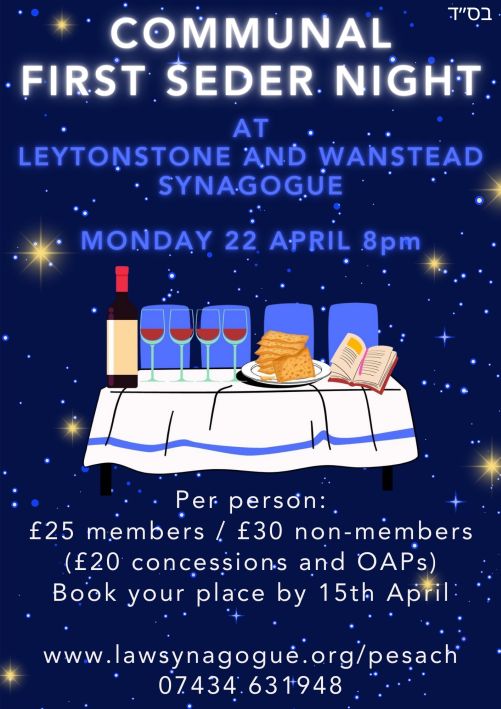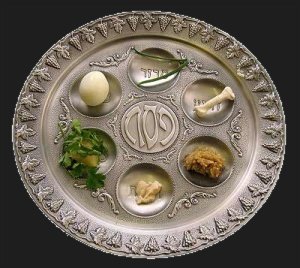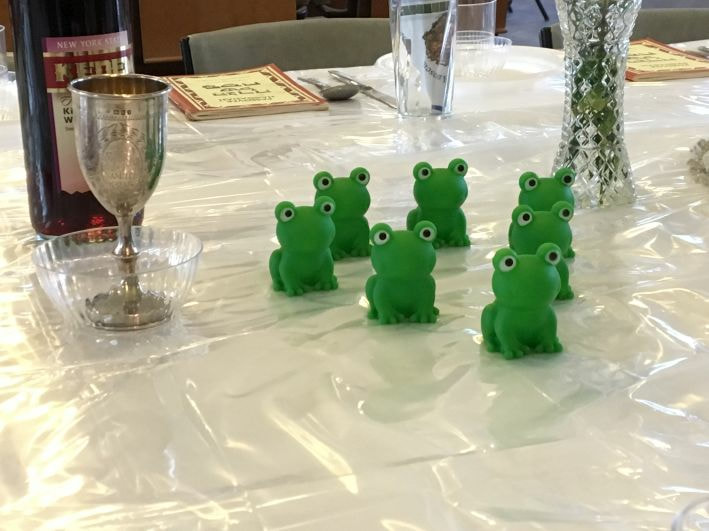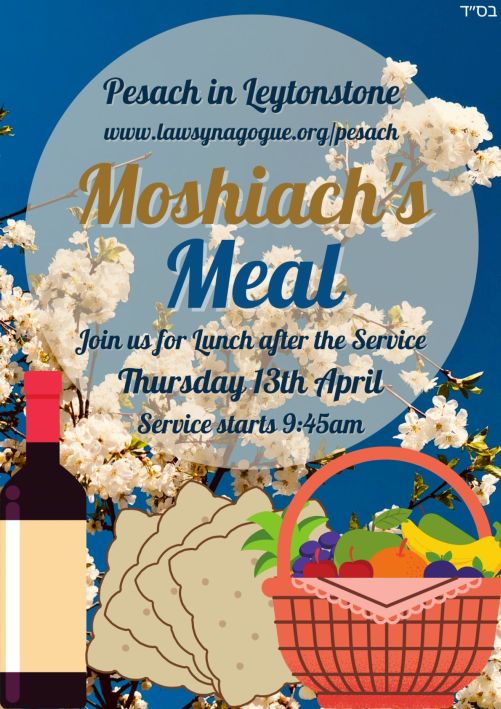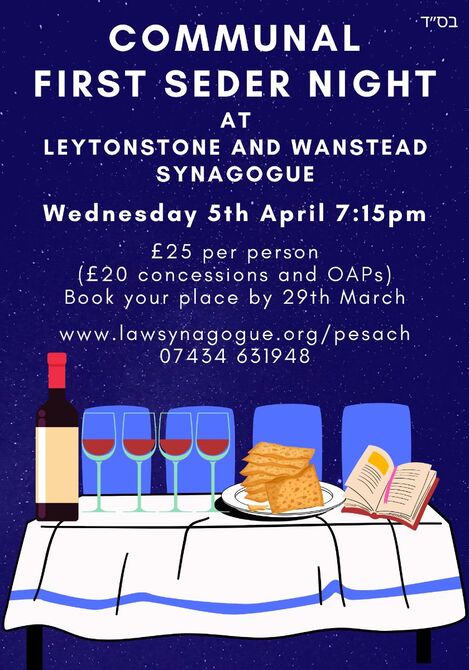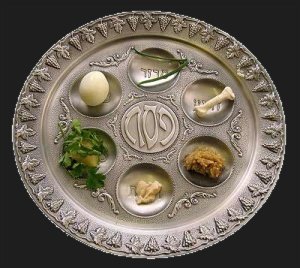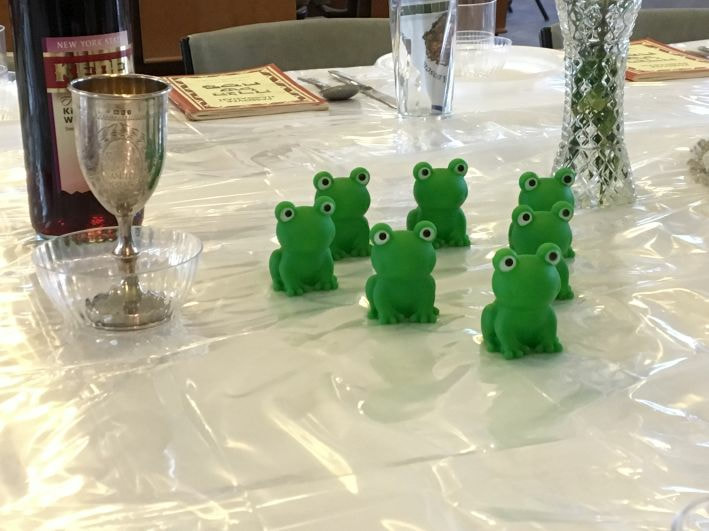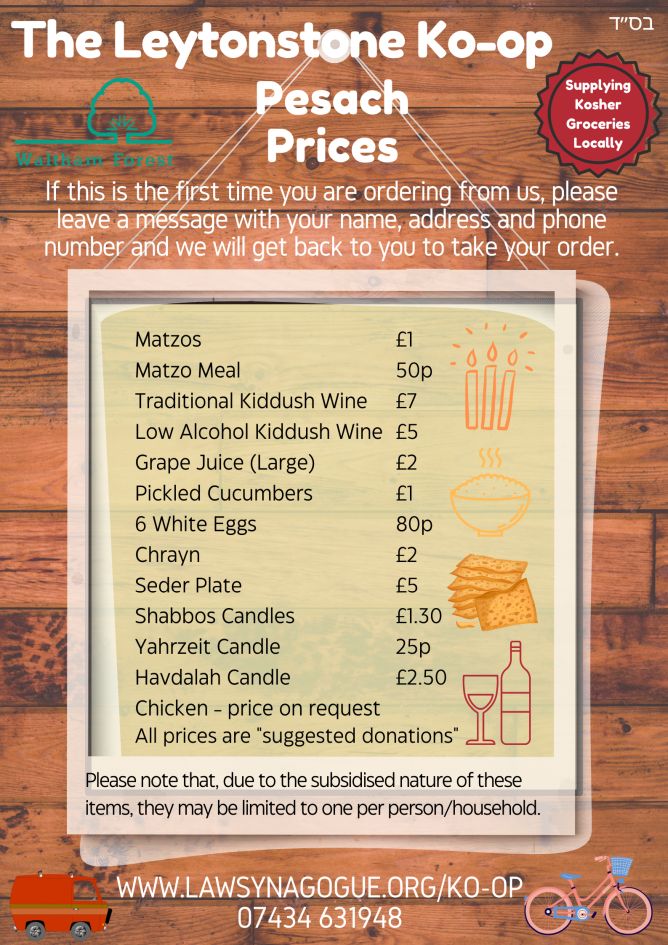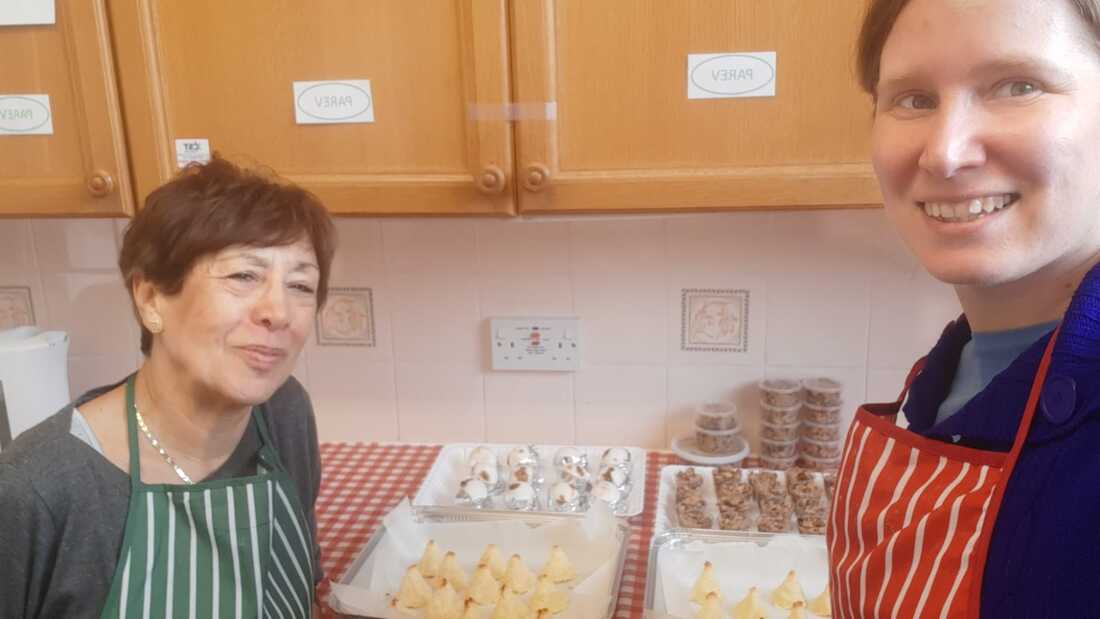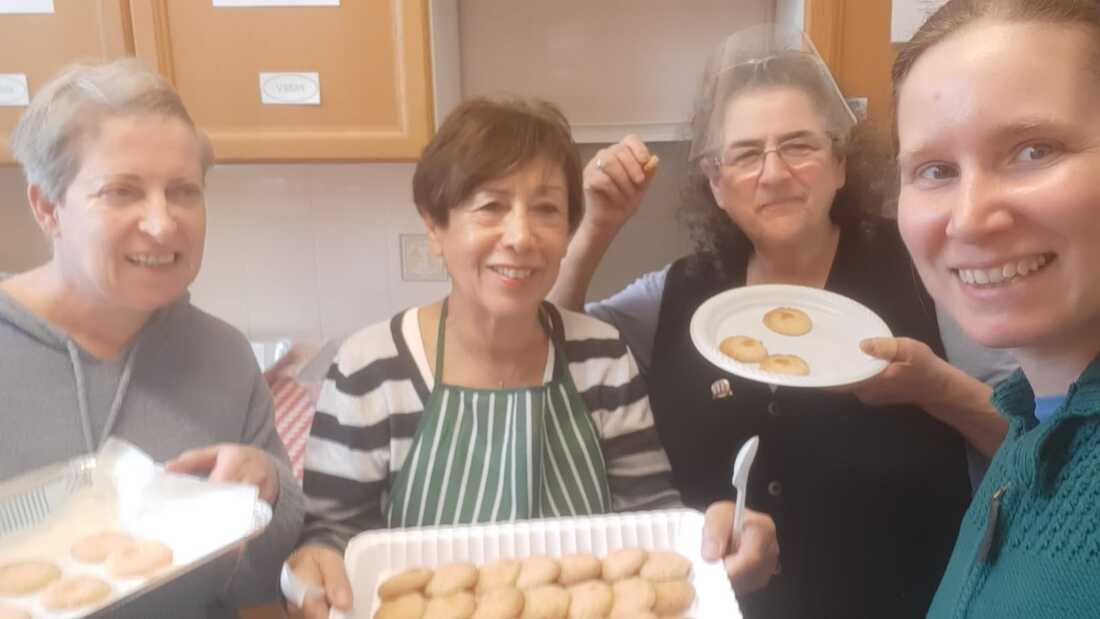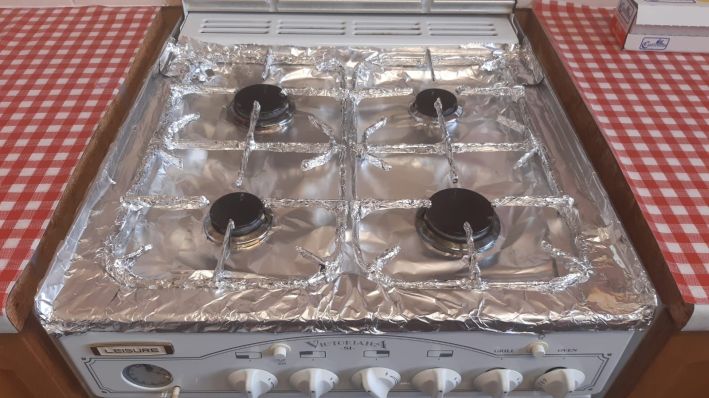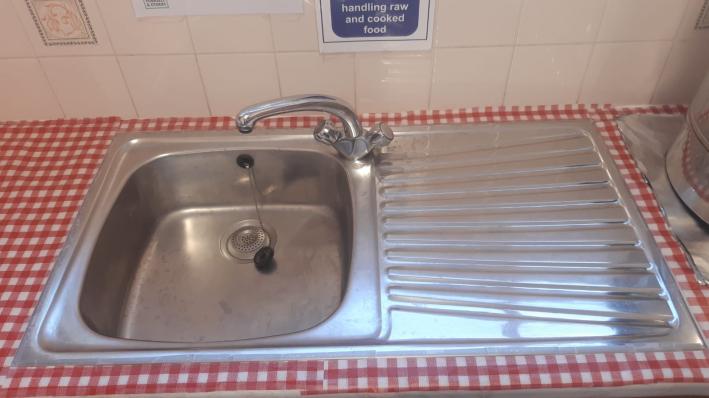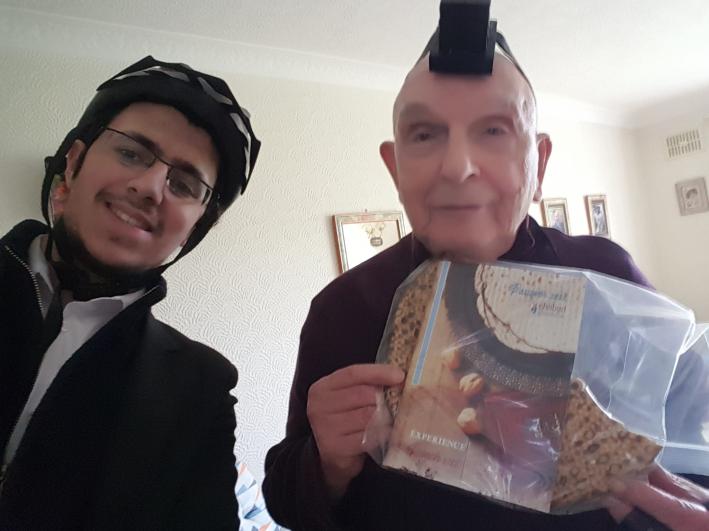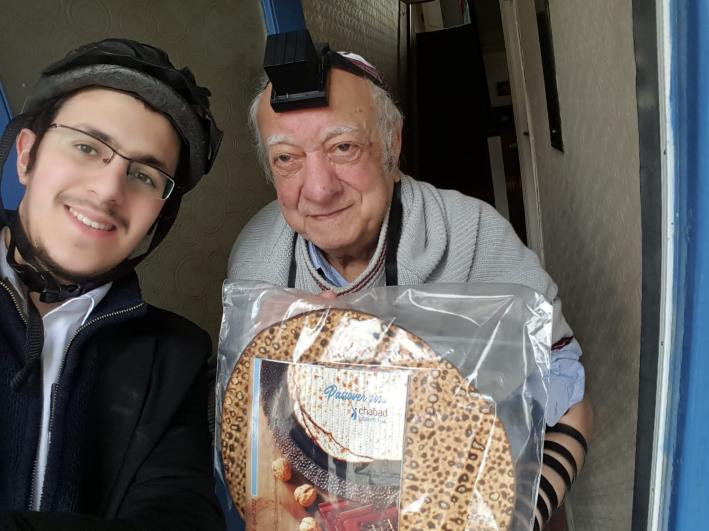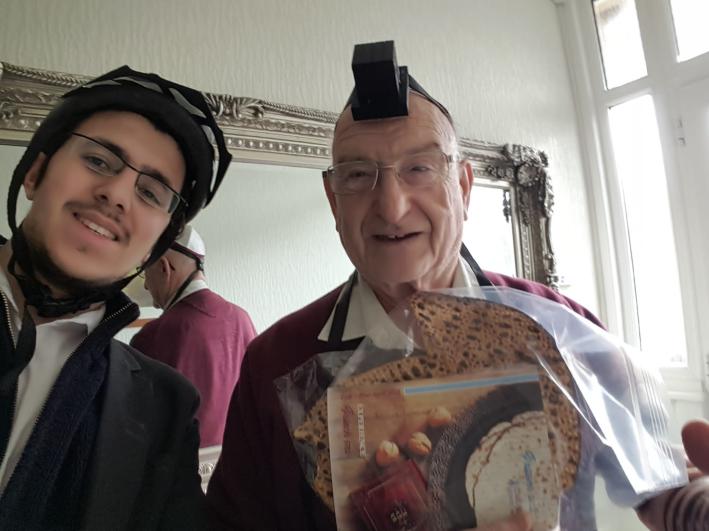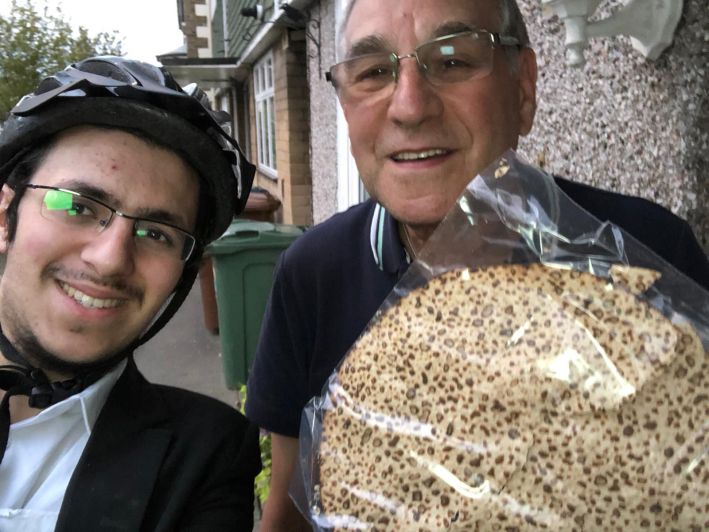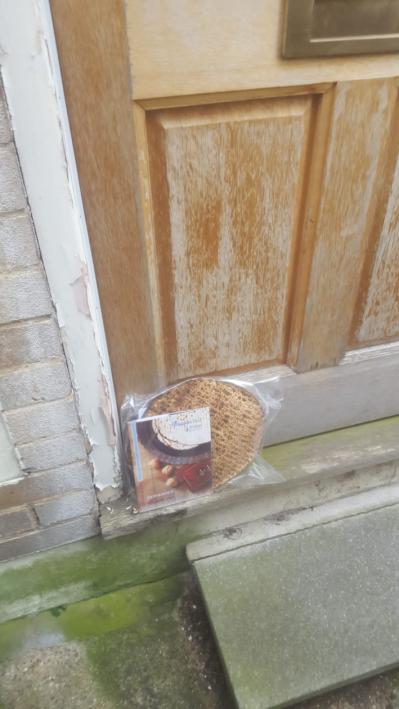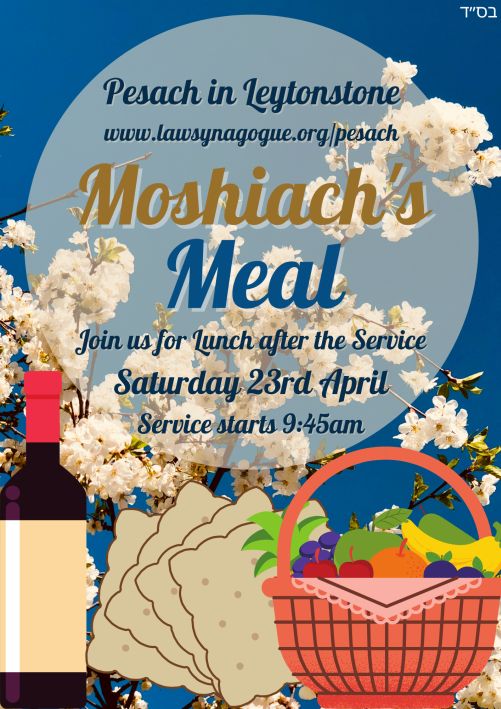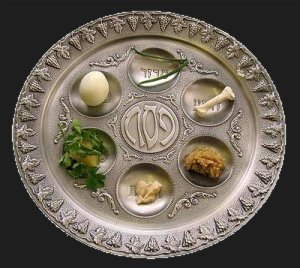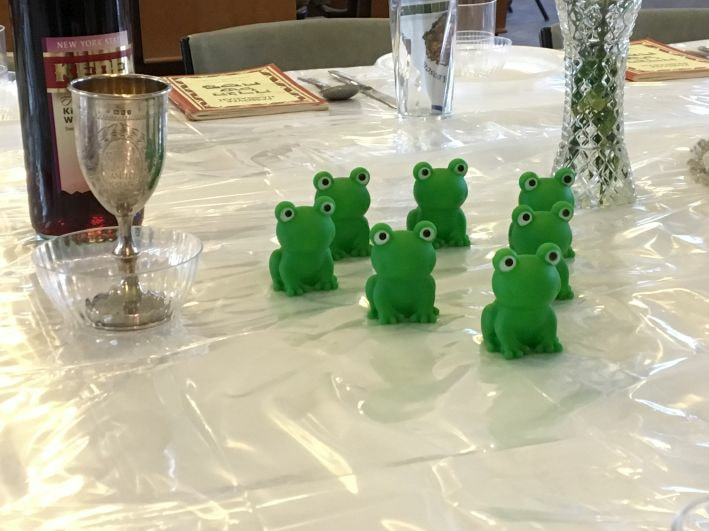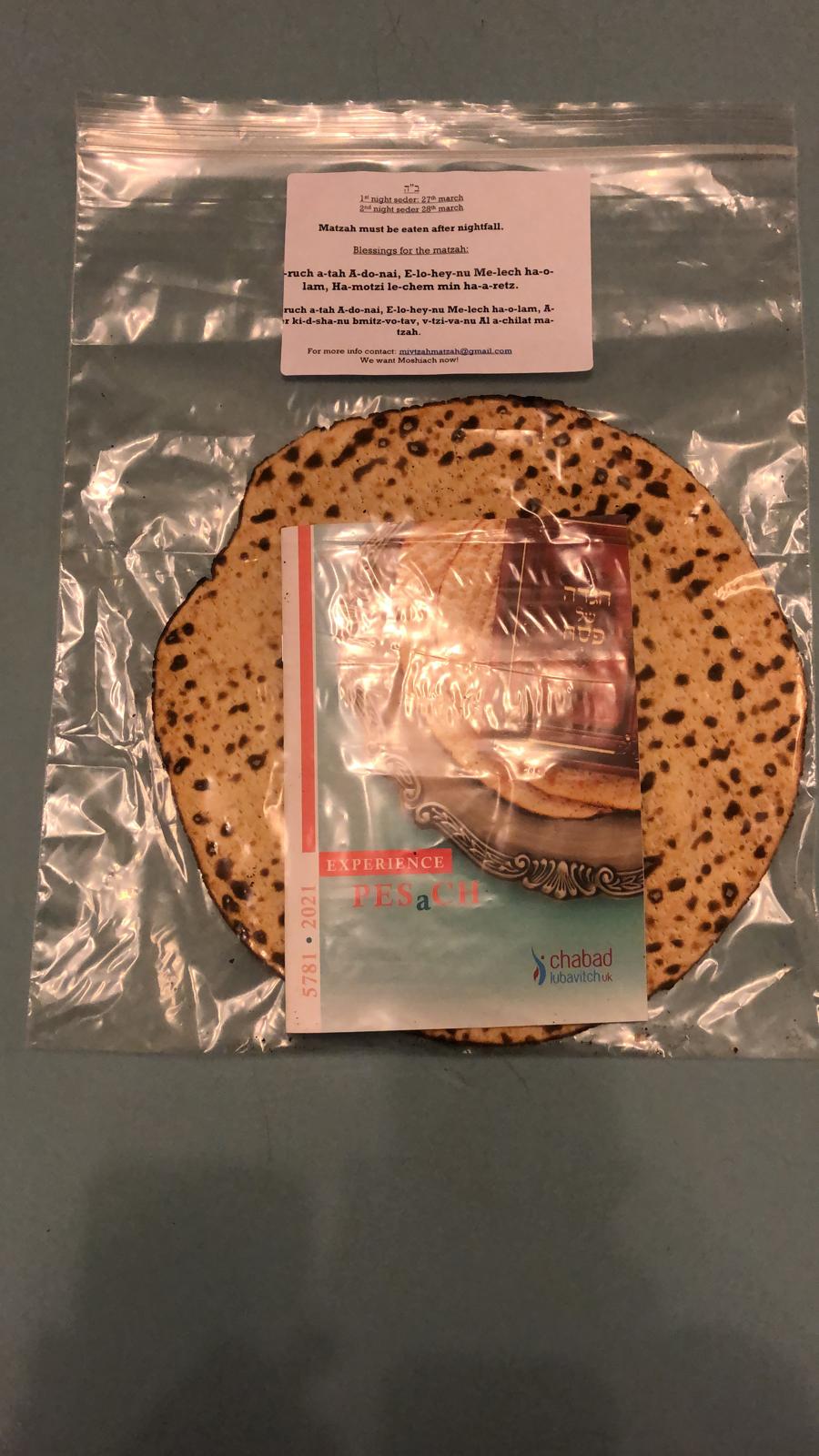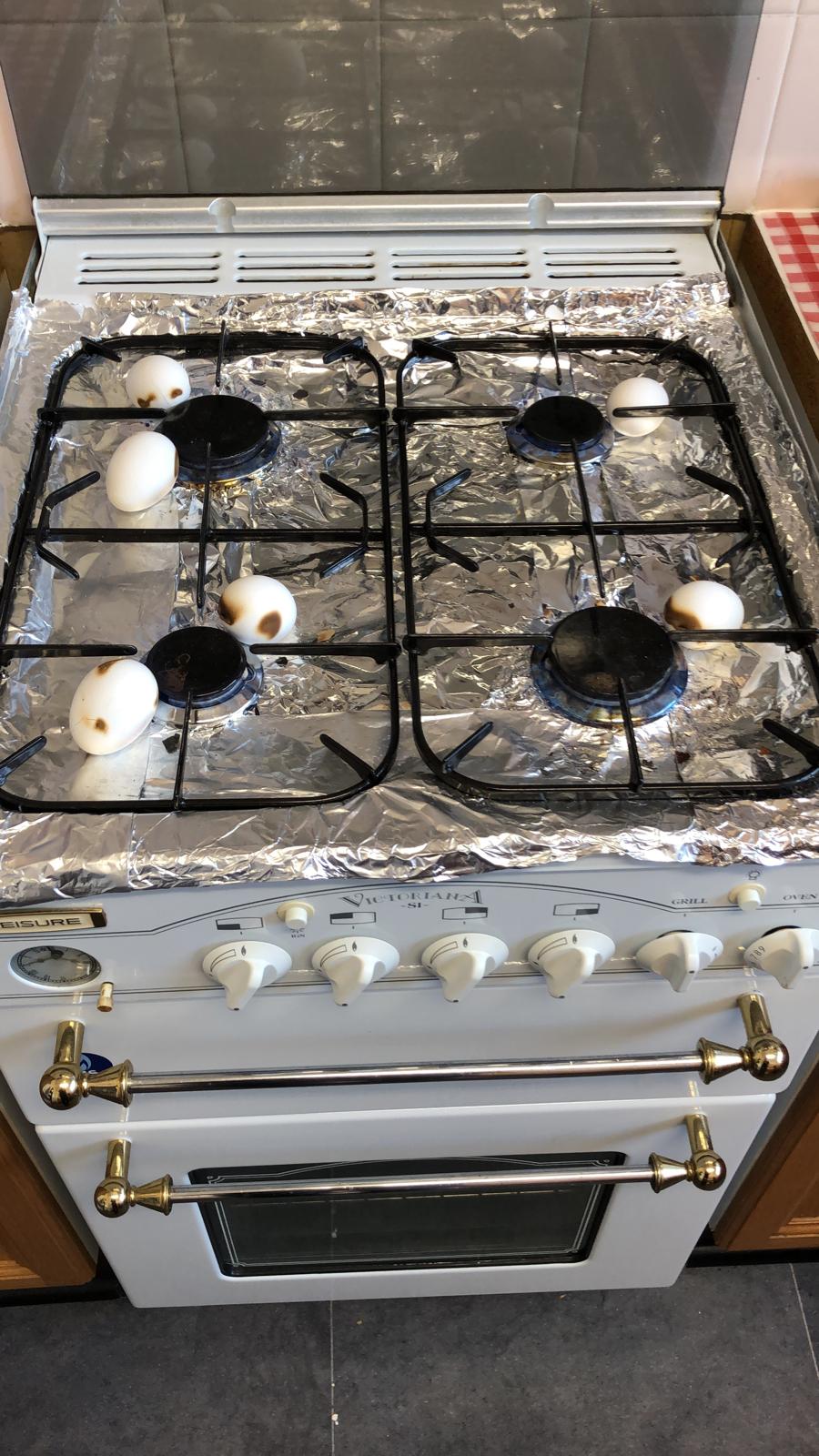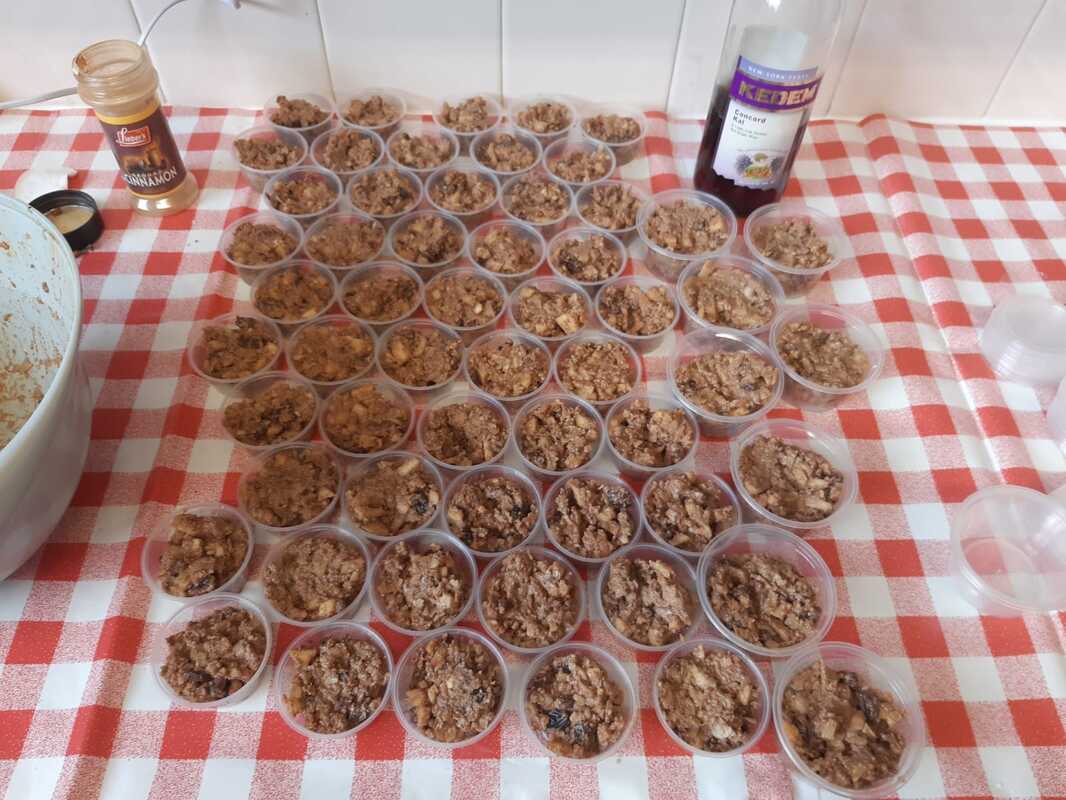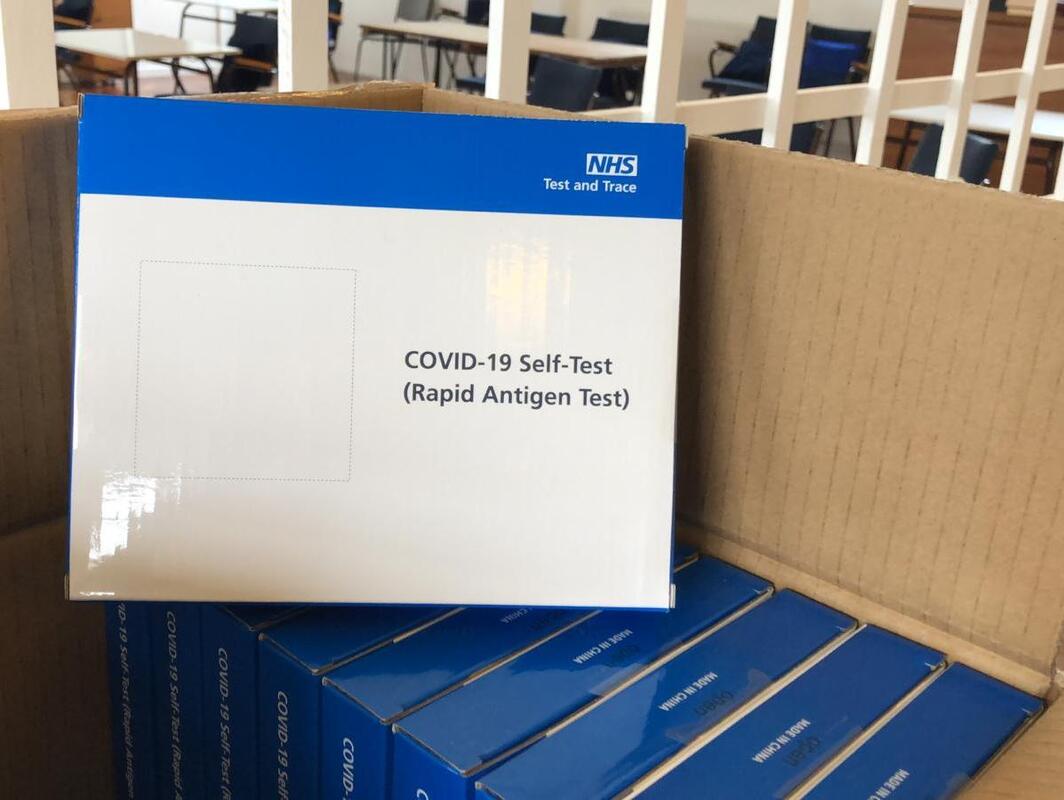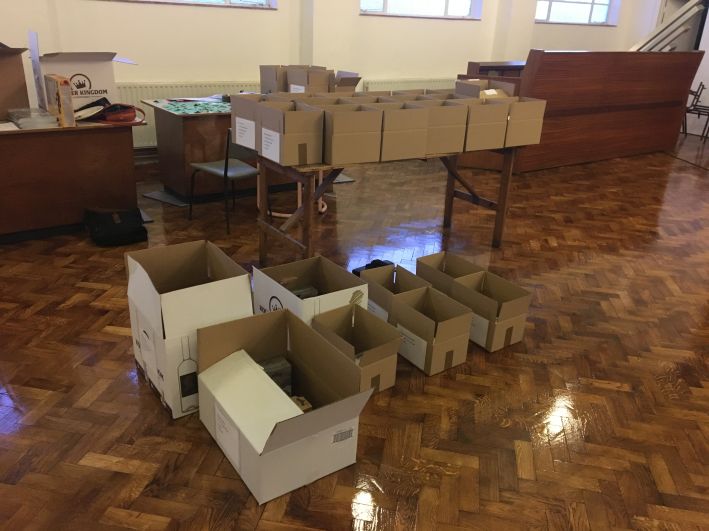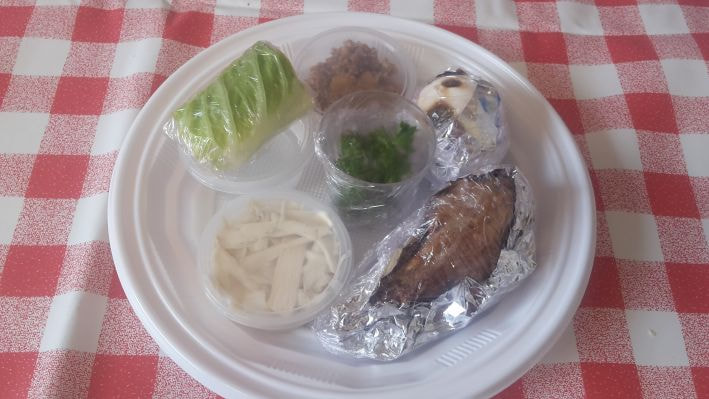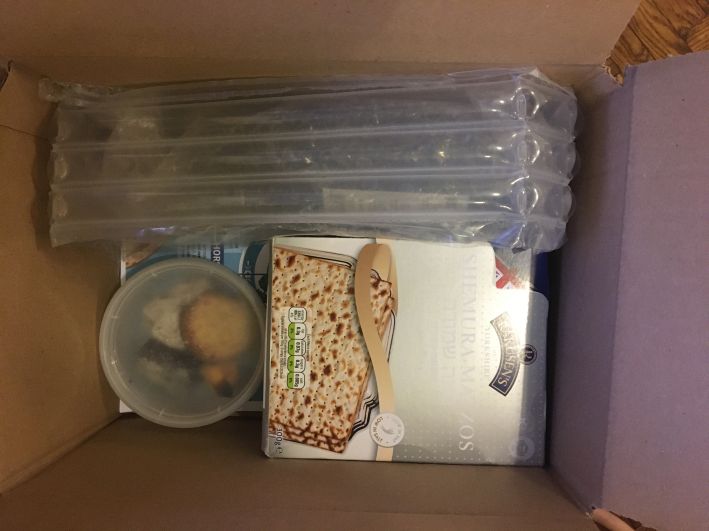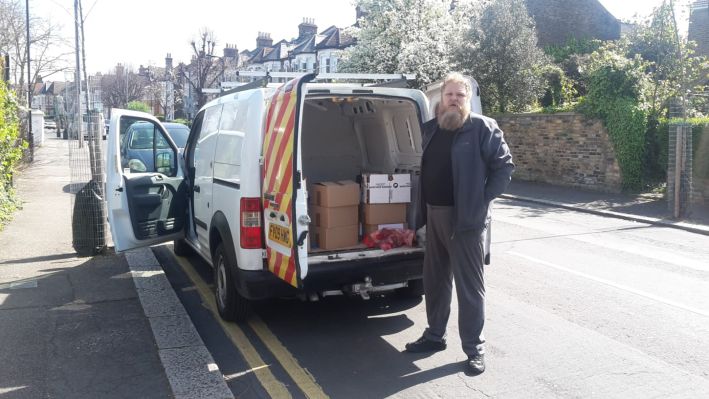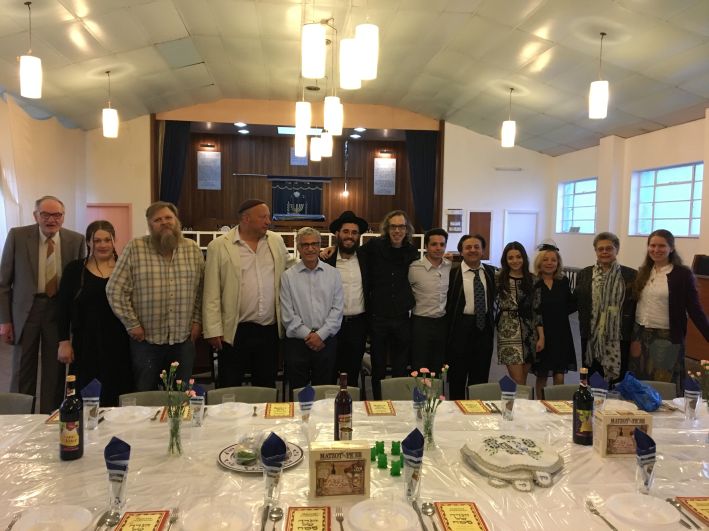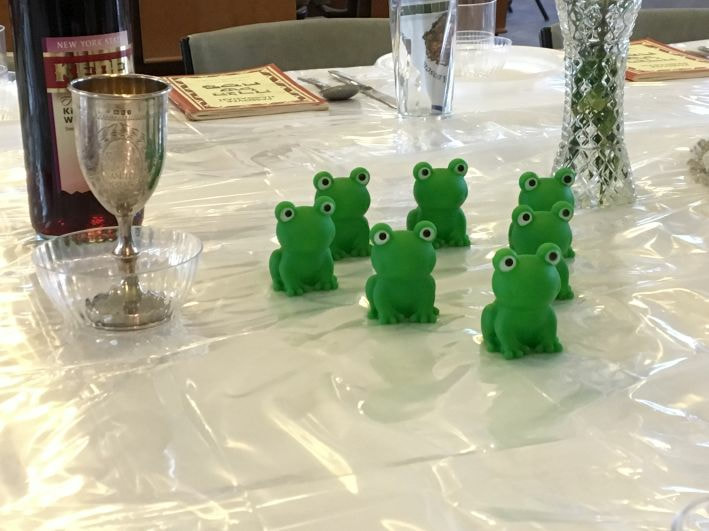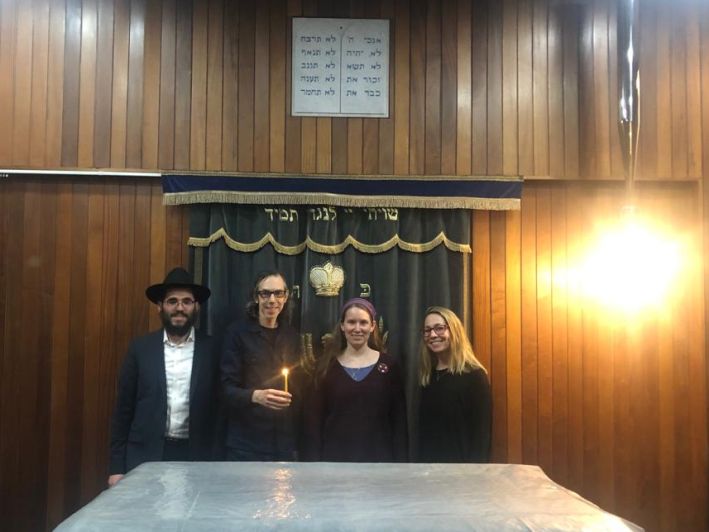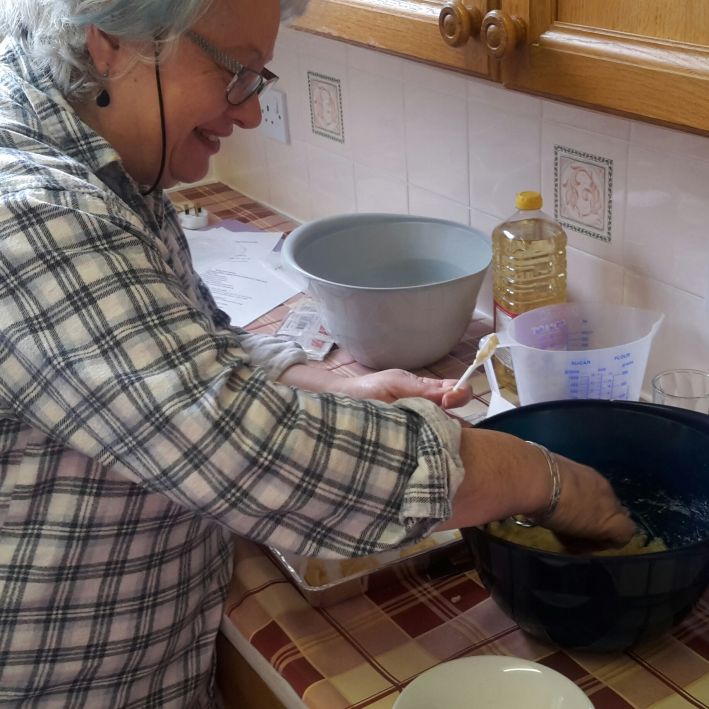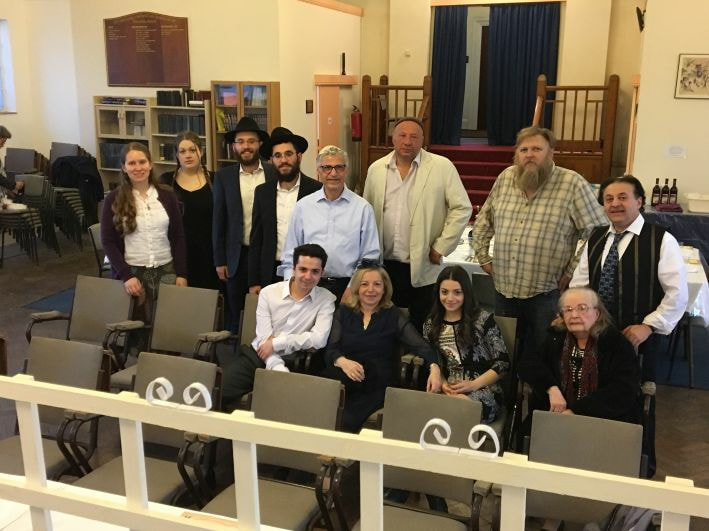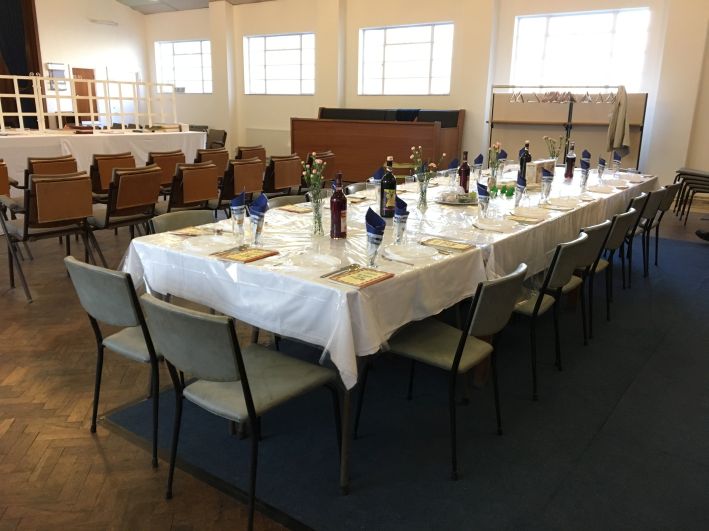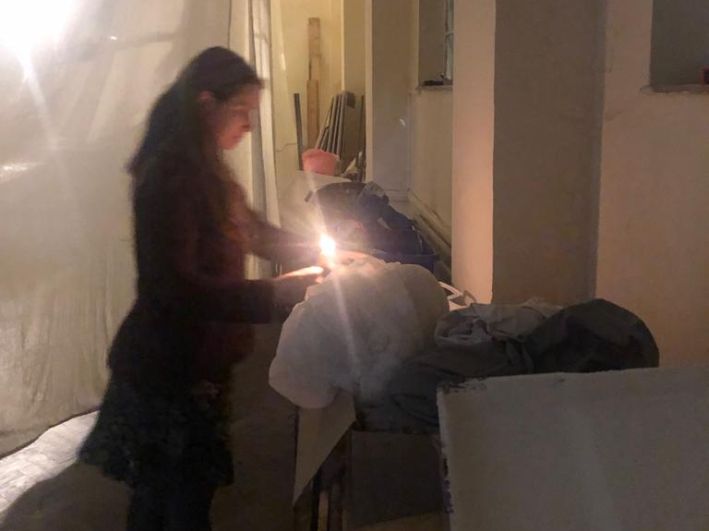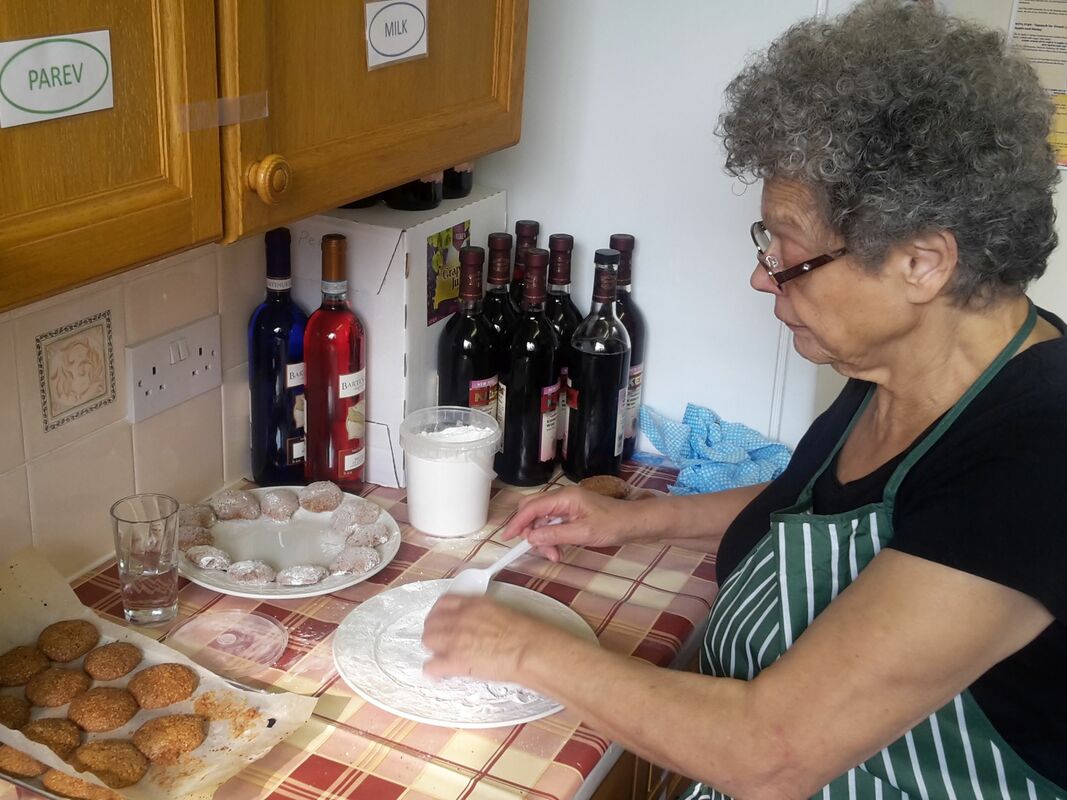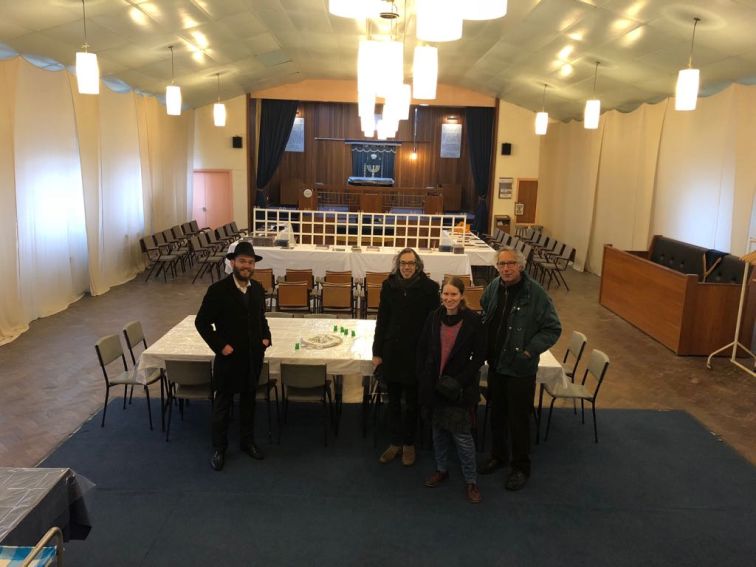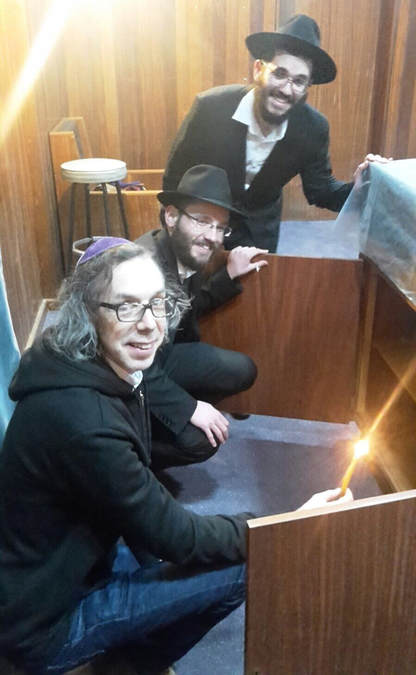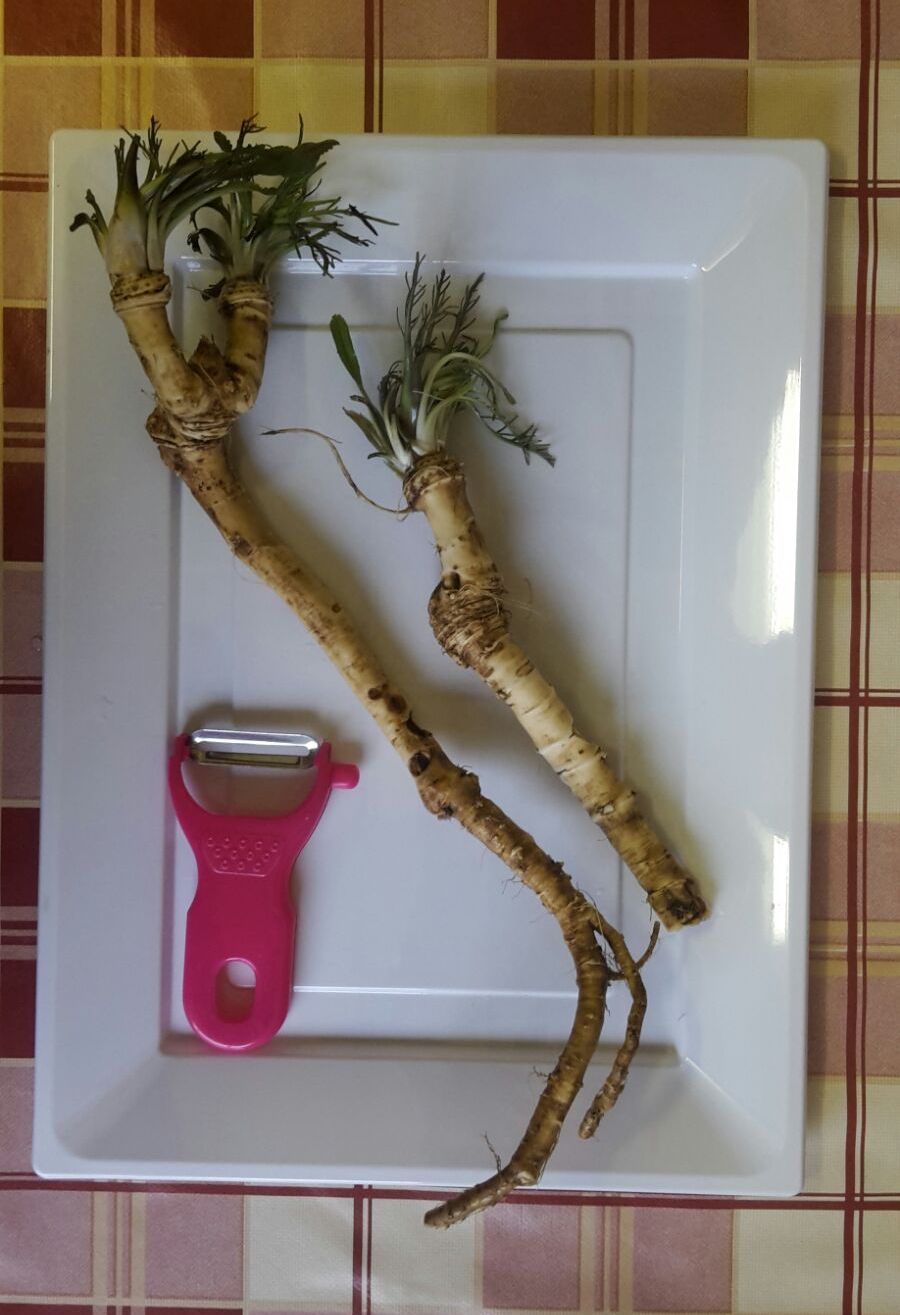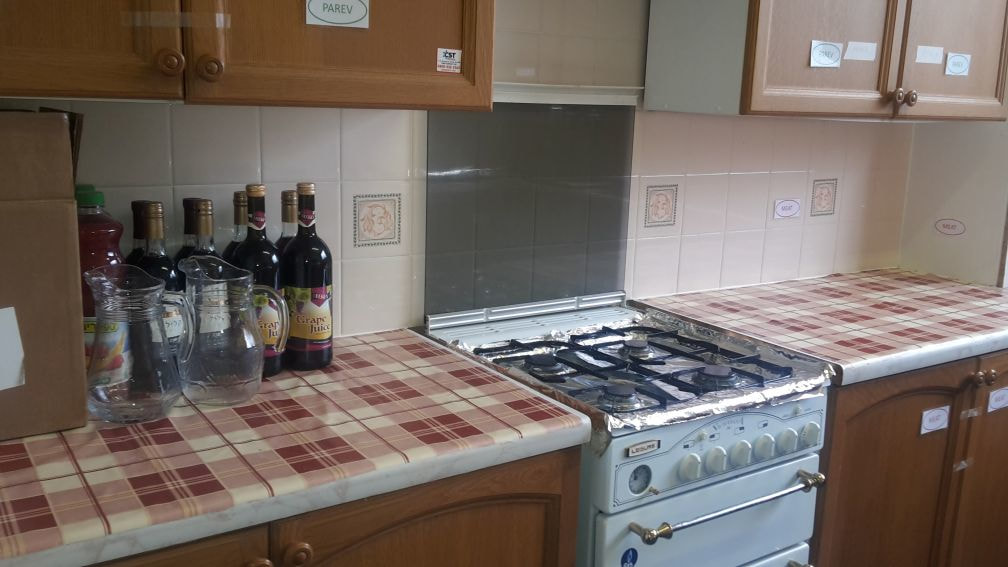Communal First Seder Night
Monday 22nd April 8:00pm
£25 Members / £30 Non-Members
(£20 for concessions and OAPs)
£25 Members / £30 Non-Members
(£20 for concessions and OAPs)
Come along to our communal first Seder night. Join us for chicken soup, plagues and songs!
Please use the form below to book a place.
Please use the form below to book a place.
Account name: Leytonstone and Wanstead Synagogue
Account Number: 10531936
Sort Code: 40 04 17
Registered Charity Number 1185624
Account Number: 10531936
Sort Code: 40 04 17
Registered Charity Number 1185624
Sell your Chometz using this form.
Pesach 2023
Moshiach's Meal 13th April
Communal First Seder Night
Wednesday 5th April 7:15pm
£25 per person
(£20 for concessions and OAPs)
£25 per person
(£20 for concessions and OAPs)
Come along to our communal first Seder night. Join us for chicken soup, plagues and songs!
Please use the form below to book a place.
Please use the form below to book a place.
A Pesach Message from Rabbi Yitzchok Austin
We recently read on Shabbos the parshas of Hachodesh. This is always read on or before Rosh Chodesh Nisan and discusses the laws of the New Moon, Pesach and the Passover offering. With regards to the latter we see two opposite ideas. On the one hand each family was required to bring their own offering which was for their household and used at their own Seder, שה לבית - a lamb for each house. On the other hand, everyone did the same thing, כל קהל עדת ישראל - the whole assembly of the children of Israel.
This teaches us that each individual needs to do their own effort but simultaneously they are part of the big picture. I think this really describes the LAWS community. There are many individuals at different stages of their Yiddishkeit, all making a contribution to the various activities and things going in the shul. At the same time this is part of the big picture, encompassing the ideals of the LAWS community.
We say in the Haggadah, whoever does not mention the following three things has not fulfilled their obligation: Pesach (the Passover offering), Matzah, and Maror (bitter herbs). Matzah is a scriptural commandment that applies at all times and in all places. It represents the basic things we need and the basic aspects of Torah and mitzvos. Bitter herbs are a scriptural commandment in Temple times and a Rabbinic one nowadays. It represents the things we should keep away from and the negative commandments we should be careful with. The Passover offering, however, was only brought in the Temple and was a scriptural commandment. It does not apply nowadays. It represents the aspect of hiddur mitzvah, doing a mitzvah in the most beautiful way. Let us hope that this Passover we should fulfill the special mitzvos in the best possible way, and that all the negative things going on in the world should cease. May we merit the rebuilding of the Beis Hamikdosh speedily so we will again experience the Passover offering.
With wishes for a Kosher Pesach v’Sameach!
Rabbi Yitzchok Austin
We recently read on Shabbos the parshas of Hachodesh. This is always read on or before Rosh Chodesh Nisan and discusses the laws of the New Moon, Pesach and the Passover offering. With regards to the latter we see two opposite ideas. On the one hand each family was required to bring their own offering which was for their household and used at their own Seder, שה לבית - a lamb for each house. On the other hand, everyone did the same thing, כל קהל עדת ישראל - the whole assembly of the children of Israel.
This teaches us that each individual needs to do their own effort but simultaneously they are part of the big picture. I think this really describes the LAWS community. There are many individuals at different stages of their Yiddishkeit, all making a contribution to the various activities and things going in the shul. At the same time this is part of the big picture, encompassing the ideals of the LAWS community.
We say in the Haggadah, whoever does not mention the following three things has not fulfilled their obligation: Pesach (the Passover offering), Matzah, and Maror (bitter herbs). Matzah is a scriptural commandment that applies at all times and in all places. It represents the basic things we need and the basic aspects of Torah and mitzvos. Bitter herbs are a scriptural commandment in Temple times and a Rabbinic one nowadays. It represents the things we should keep away from and the negative commandments we should be careful with. The Passover offering, however, was only brought in the Temple and was a scriptural commandment. It does not apply nowadays. It represents the aspect of hiddur mitzvah, doing a mitzvah in the most beautiful way. Let us hope that this Passover we should fulfill the special mitzvos in the best possible way, and that all the negative things going on in the world should cease. May we merit the rebuilding of the Beis Hamikdosh speedily so we will again experience the Passover offering.
With wishes for a Kosher Pesach v’Sameach!
Rabbi Yitzchok Austin
Pesach 2022
Seder Night kits for everyone to do their own Seder Nights at home
This includes all the symbolic foods detailed in the haggadah, matzoh, kiddush wine and loan of haggadahs for all members of local Jewish households. They will have to make their own chicken soup and kneidlech though!
Suggested Donation £12, please use the form below to book a kit.
Moshiach's Meal 23rd April 2022
Communal First Seder Night
Friday 5th April 7:30pm
£25 per person
(£20 for concessions and OAPs)
£25 per person
(£20 for concessions and OAPs)
Seder Night Kits 2021
Free Seder Night kits for everyone to do their own Seder Nights at home
This includes all the symbolic foods detailed in the haggadah, and loan of haggadahs for all members of local Jewish households. They will have to make their own chicken soup and kneidlech though!
Message for Pesach 2021 from Rabbi Yitzchok Austin
The festival of Passover, Pesach, is always in the spring, Chodesh ha’Aviv, and there's a connection between the Yom Tov of Pesach and the fact that it falls at this time of the year. During the winter, the ground is dormant and nothing grows, and then all of a sudden comes Spring. The days get a little bit longer, it gets a little bit warmer, and suddenly we start to see the beginning of new produce, new flowers. This is what happened to Am Yisroel in the times of Passover in Egypt. They were slaves both physically and spiritually. They were tired. They were starved. And then all of a sudden, the great miracle of Pesach took place and the Jewish people left Egypt.
So this is the connection between Pesach and Spring. The lesson for us is that we also have to rejuvenate, not just physically but, of course, spiritually. This is one of the important lessons that Pesach tells us, that it's time to refresh ourselves and to rejuvenate ourselves and to not only do the special mitzvahs which are applicable to the time of Passover, that's for sure, but in general: to rejuvenate our connection with Torah and mitzvahs. This is what we can learn from the Yom Tov of Pesach.
I'd like to say thank you to all the people involved in the Shul, the Shul committee and the volunteers who have not only tried to keep the shul going and open during this lockdown, but have also reached out to many other people and tried to ensure they have their connection with Yiddishkeit. I wish everybody a Good Yom Tov and a Koshern un Freilichen Pesach.
The festival of Passover, Pesach, is always in the spring, Chodesh ha’Aviv, and there's a connection between the Yom Tov of Pesach and the fact that it falls at this time of the year. During the winter, the ground is dormant and nothing grows, and then all of a sudden comes Spring. The days get a little bit longer, it gets a little bit warmer, and suddenly we start to see the beginning of new produce, new flowers. This is what happened to Am Yisroel in the times of Passover in Egypt. They were slaves both physically and spiritually. They were tired. They were starved. And then all of a sudden, the great miracle of Pesach took place and the Jewish people left Egypt.
So this is the connection between Pesach and Spring. The lesson for us is that we also have to rejuvenate, not just physically but, of course, spiritually. This is one of the important lessons that Pesach tells us, that it's time to refresh ourselves and to rejuvenate ourselves and to not only do the special mitzvahs which are applicable to the time of Passover, that's for sure, but in general: to rejuvenate our connection with Torah and mitzvahs. This is what we can learn from the Yom Tov of Pesach.
I'd like to say thank you to all the people involved in the Shul, the Shul committee and the volunteers who have not only tried to keep the shul going and open during this lockdown, but have also reached out to many other people and tried to ensure they have their connection with Yiddishkeit. I wish everybody a Good Yom Tov and a Koshern un Freilichen Pesach.
Seder night kits launched on 7th April 2020
Pesach First Seder Night - Friday 19th April 2019
Pesach Second Seder Night - Saturday 31st March 2018
Seder table & small plague of frogs ready for Pesach
The kitchen is Pesach ready
